Agenda
Welcome
Presentations From:
(Panel 1) Charting a New Course: A Transformative Agenda for Education in Public Health
Break
(Panel 2) Leading the Change: Challenges and Opportunities in Academic Public Health
Speakers
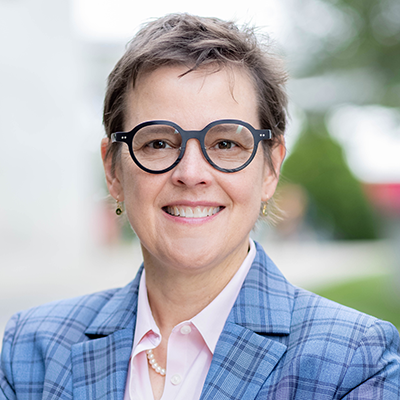
Amy Fairchild
Dean and Professor, The Ohio State University College of Public Health
Amy Lauren Fairchild is a historian who works at the intersection of history, public health ethics, and public health policy and politics. Her work helped establish public health ethics—which is concerned with the well-being of populations—as fundamentally distinct from either bioethics or human rights. Whether exploring the tension between privacy and surveillance, immigration and border control, or paternalism and liberty, Fairchild assesses the social, political, and ethical factors that shape not only the potential and limits of the state to intervene for the common good but also what counts as evidence.
Fairchild has written two books: Science at the Borders: Immigrant Medical Inspection and the Shaping of the Modern Industrial Labor Force and Searching Eyes: Privacy, the State, and Disease Surveillance in America (with Ronald Bayer and James Colgrove). In addition, she has published in leading journals including the New England Journal of Medicine, Health Affairs, the American Journal of Public Health, Science, and the JAMA. The National Endowment for the Humanities funds her current book project: a social history of fear and panic.
A member of the 2023 class of American Association for the Advancement of Science fellows, Fairchild graduated from the Plan II Honors Program at the University of Texas at Austin, and received her MPH and PhD from Columbia University. She was on the faculty at Columbia for 22 years in the Department of Sociomedical Sciences at the Mailman School of Public Health. At Columbia, she served as Assistant Director for Academic Affairs in the Center for the History and Ethics of Public Health, Chair of the Department of Sociomedical Sciences, and Director of the Foundations module and Integration of Science and Practice in the MPH Core Curriculum. She continues to serve as Co-Director, with Ronald Bayer, of the World Health Organization Collaborating Center for Bioethics at Columbia’s Center for the History and Ethics of Public Health. Fairchild also served on the faculty at Texas A&M University. There, she was Associate Dean for Academic Affairs at the School of Public Health and Associate Vice President for Faculty and Academic Affairs at the Health Science Center.
Fairchild feels extraordinarily honored to serve as Dean of the College of Public Health at The Ohio State University. Any university with the chutzpah to have a poison nut for a mascot is the kind of place she wants to stay.
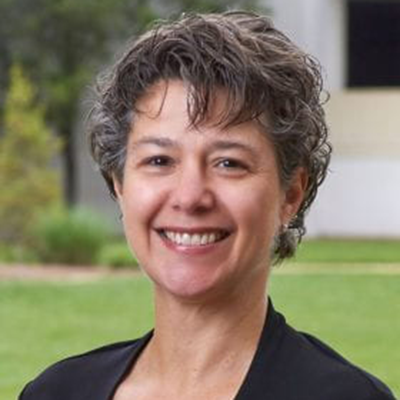
Heather Hageman
Director, Center for Interprofessional Practice and Education, Washington University Medical Center
Heather Hageman is the inaugural director of the Center for Interprofessional Practice and Education at Washington University Medical Campus. Her background is in strategic planning, program and outcomes assessment, accreditation, and project management. Hageman has more than 20 years’ experience in medical education, most recently as director for educational planning and program assessment in the Office of Education at Washington University’s School of Medicine. She was also the operations director of the Standardized Patient Center, a resource to health professions programs on the medical campus that provides simulated clinical experiences for learners using individuals trained to portray patient cases in a consistent manner.
Hageman is an accomplished presenter both nationally and internationally, board member of the American Interprofessional Health Collaborative, a reviewer for the Journal of Interprofessional Education and Practice, and a member of several organizations including the National Center for Interprofessional Practice and Education and the AAMC Group on Educational Affairs. This national involvement is part of her commitment to sharing best practices across diverse institutions so that everyone can benefit and learn from shared opportunities. Hageman is a certified facilitrainer with NCCJ St. Louis, a 2010 alumna of the Greater Missouri Leadership Challenge, and the recipient of the AAMC’s Central Group on Educational Affairs Laureate Award in 2013.
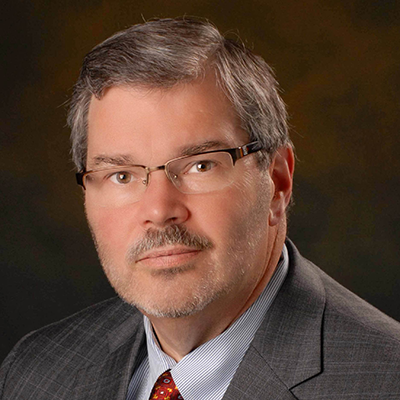
Paul K. Halverson
Founding Dean, Indiana University Richard M. Fairbanks School of Public Health
Paul Halverson is the founding dean of the Indiana University Richard M. Fairbanks School of Public Health in Indianapolis. Dr. Halverson came to Indiana University from the Arkansas Department of Health where he served as state health officer and director. Prior to his appointment as State Health Officer, Dr. Halverson served in senior management roles at the U.S. Centers for Disease Control and Prevention including as senior advisor in the office of strategy and innovation, senior scientist and director of the division of public health systems development and research, director of the CDC’s World Health Organization’s Collaborating Center for Public Health and director of the National Public Health Performance Standards program. Before joining the CDC Dr. Halverson served as the senior health policy advisor for the North Carolina Department of Environment, Health and Natural Resources.
Dr. Halverson began his career in health administration and has fifteen years of experience as a hospital and health system executive, working in Phoenix, Minneapolis, and mid-Michigan. Dr. Halverson earned a doctorate in public health from the University of North Carolina, his master’s degree in health services administration from Arizona State University and is a Fellow of the American College of Healthcare Executives.

Trinidad Jackson
Assistant Professor, Assistant Dean for Culture and Liberation, University of Louisville School of Public Health & Information Sciences
Dr. Trinidad Jackson is a proud son of St. Louis, MO, and has been blessed to call many places home. In November 2014, the fight for collective liberation summoned Dr. Jackson’s mind, body, and spirit back to St. Louis as a disruptor and social movement scientist. The Ferguson Uprising—sparked by Ferguson Police Department’s murder of Michael Brown—provided a landscape that carried his critical social action research from St. Louis to Louisville. Upon returning to Louisville in 2015, he led community-based participatory research that explored power, oppression, and the need for critical consciousness and action through lenses of justice, safety, hope, and racial equity. This engagement and critical community-generated data were foundations for his team’s ultimate CDC Center of Excellence designation for violence prevention research. Their approach deviated from traditional violence prevention by hiring youth to engage in teaching, learning, and co-leading efforts addressing structural violence and liberation. During this same time period, Dr. Jackson was the lead evaluator for Pivot to Peace—a collaborative effort across Louisville that recruited gunshot and stab wound victims from their hospital beds to engage in communal healing and community building. His work has been disseminated at local, national, and international levels through academic publications, presentations, and art.
Dr. Jackson has engaged in multiple fellowships with organizations focused on sociopolitical transformation including Kentuckians for the Commonwealth and BMe, an organization working to transform Black communities locally and nationally. In July 2020—during racial justice uprisings across the country, he presented to Louisville Metro Council, urging it to declare racism a public health crisis. He felt it critical to catalyze government responsibility for a social phenomenon that kills so many people daily. In December 2020, an executive order addressing this crisis was declared, but the city has monumental gains to make before racially minoritized people are not suffering from premature death rooted in legacies of white supremacy.
He is a board member for the Minority Mental Health Project and has volunteered on numerous committees for entities including the University of Louisville, Louisville Metro Government, Jefferson County Public Schools, Louisville Urban League, and the Association of Schools and Programs of Public Health. In 2021, he was selected as the inaugural Assistant Dean for Culture and Liberation at the University of Louisville School of Public Health and Information Sciences (SPHIS) and also appointed as Senior Advisor to the Commissioner within Kentucky’s Cabinet for Health and Family Services to address policies, systems, and environments in ways that prioritize race, equity, and public health. In July 2022, Dr. Jackson earned an additional promotion to Assistant Professor at SPHIS.
He has been presented with the Center for Women and Families’ Nolen Allen Man of Distinction and the Outstanding Student/Employee of the Year awards for his professional and community-related efforts. He also received the Vera Pater Award from the Global Alliance for Behavioral Health and Social Justice for “significant contributions to the social, education, physical, or psychological well-being of persons of color, thereby promoting their empowerment and ameliorating disadvantage from oppression and its effects.” Dr. Jackson was inducted into Kentucky State University’s 2021 Forty under Forty class, and he was honored with a proclamation for Trinidad Jackson Day (June 26) in the city of Louisville.
On May 13, 2022, he earned a PhD in Public Health Sciences from the University of Louisville. Dr. Jackson graduated receiving both a Graduate Dean’s Citation and the Guy Stevenson Award—the highest honor given to one graduating student—for outstanding contributions in scholarship, leadership, teaching, and service. He was also the commencement speaker for the doctoral hooding and graduation ceremony.
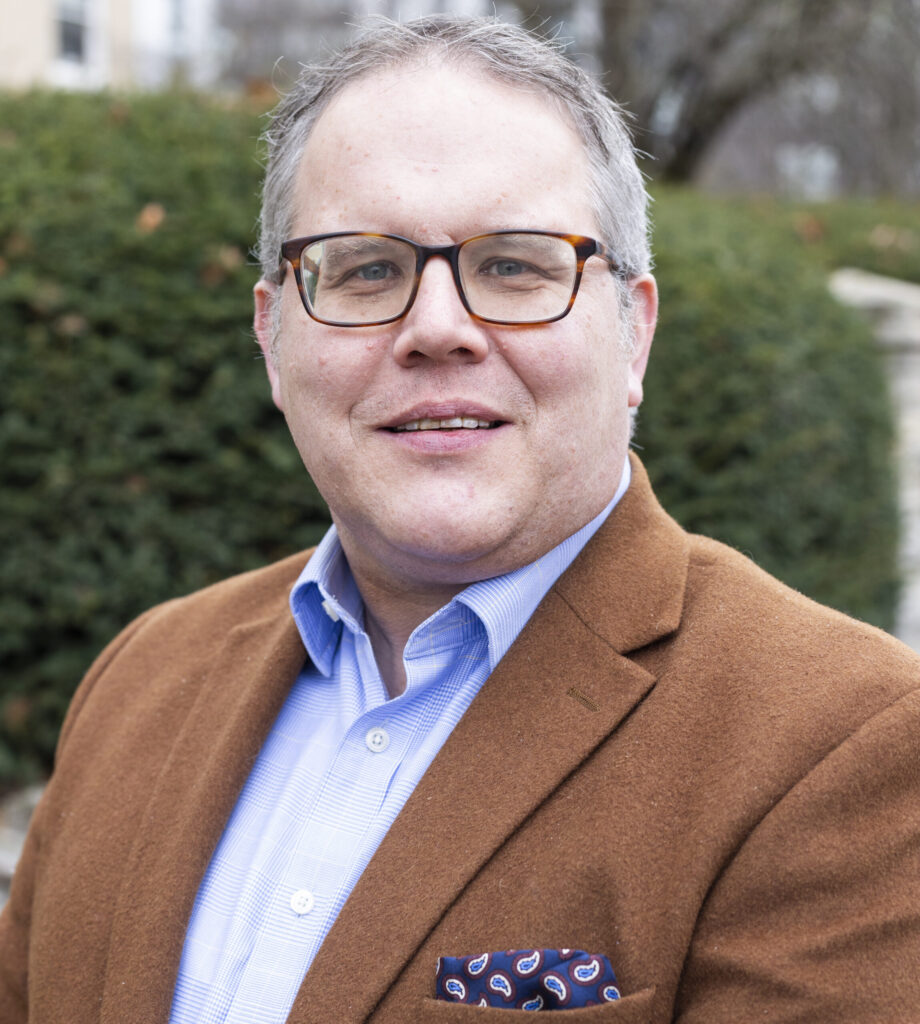
Marc Kiviniemi
Development Dimensions International Endowed Professor, University of Kentucky College of Public Health
Dr. Marc T. Kiviniemi is the Development Dimensions International Endowed Professor of Health, Behavior and Society.
Dr. Kiviniemi a social/health psychologist whose work focuses on understanding how people make decisions about engaging in health-related behaviors, how individuals process and respond to information about their health, and how to communicate that information most effectively.
His work on decision making, risk perception, and intervention development is funded by the National Institutes of Health. Dr. Kiviniemi is past chair of the Health Decision Making Special Interest Group for the Society for Behavioral Medicine. He also serves on the editorial board of the Journal Annals of Behavioral Medicine.
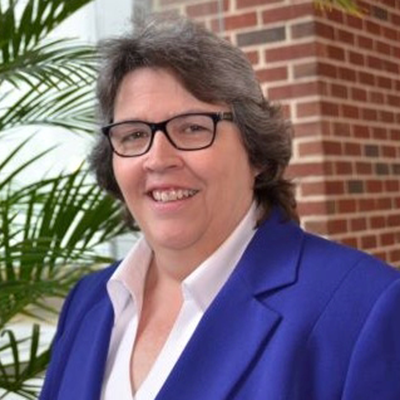
Laura Linnan
Senior Associate Dean, Academic and Student Affairs, University of North Carolina Gillings School of Global Public Health
Laura Linnan has more than 30 years of experience as a public health practitioner and researcher who works to eliminate chronic disease disparities with multi-level interventions designed and delivered in collaboration with the intended beneficiaries of these programs, policies or environmental supports. She is a professor in the Department of Health Behavior, founding director of the Carolina Center for Healthy Work Design and Worker Well-Being, one of ten NIOSH Centers of Excellence in Total Worker Health. She also serves as the Senior Associate Dean, Academic and Student Affairs for the Gillings School.
Dr. Linnan has a special focus on work and health. She led the team that developed, conducted and analyzed the Workplace Health in America Survey – a nationally representative survey of employers. She has been PI of the CDC-funded Workplace Health Research Network Coordinating Center, and as the Founding Director of the Carolina Collaborative for Research on Work and Health (CCRWH) she has mobilized an interdisciplinary group of researchers, employers and other partners who share the goal of planning, implementing and evaluating research to promote worker and workplace health. As work is a social determinant of health, she has also created a new graduate certificate program in Total Worker Health to build capacity in the workforce to train the next generation of health professionals in this new, merging field. Her applied intervention research has taken place in a variety of workplaces: community colleges/universities, beauty salons/barbershops, child care centers, schools and churches/faith-based organizations. She conducts innovative, mixed method research, and conducts rigorous process and outcome evaluations.
In her capacity as Senior Associate Dean, Academic and Student Affairs, Dr. Linnan has led a number of important changes in the Gillings School. She serves as the chief academic officer, overseeing the curriculum for more than 70 degree programs at the undergraduate, and graduate levels. She is also responsible for the appointments, promotion and tenure process for more than 230 Gillings faculty members on both tenure and fixed term tracks. And, she works closely with the Associate Dean for Student Affairs and the more than 30 professionals who support Gillings students from the initial recruitment process through graduation and beyond.
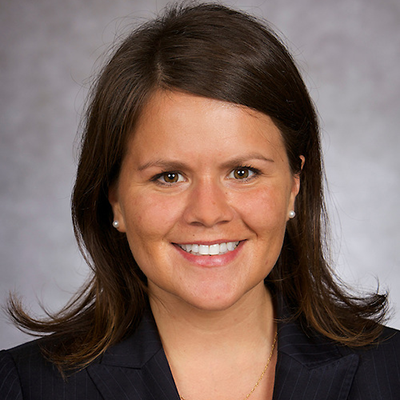
Leah C. Neubauer
Associate Professor of Preventive Medicine, Division of Public Health Practice, Northwestern University Feinberg School of Medicine; Associate Director, Program in Public Health
Dr. Neubauer is an Associate Professor of Preventive Medicine, Division of Public Health Practice, in the Feinberg School of Medicine at Northwestern University. She is Affiliated Faculty with the Institute for Global Health and the Program of African Studies (PAS) and Ad-Hoc Faculty in The Graduate School. She serves as Associate Director of the Program in Public Health (PPH) and Director of Educational Advancement and Accreditation.
As PPH Associate Director, Dr. Neubauer works closely with IPHAM/Center leadership, the PPH Director, Degree/Concentration Directors, and Professional Staff leaders to provide strategic vision, leadership and oversight of all PPH Educational Advancement and Accreditation related initiatives across thirteen degree variants. She leads the overall integration of teaching, learning, assessment , accreditation & evaluation into the Program’s efforts.
Dr. Neubauer is a nationally-recognized, award-winning educator. Her primary area of scholarship is focused on curriculum development in the health-related professions and sciences. As a critical educational methodologist and team scientist, she conducts collaborative global research specifically focused on the development, implementation, evaluation and dissemination of education and training. Dr. Neubauer utilizes multidisciplinary, theory-driven approaches to advance teaching, learning, assessment and evaluation practice within varied organizational structures. She teaches graduate-level courses in global health, public health and evaluation.

Tricia Penniecook
Associate Professor of Public Health Practice, Vice Dean for Faculty Affairs and Development, University of South Florida College of Public Health
Tricia Penniecook has over 25-years-experience as a physician, academic leader, and public health administrator.
As an educator, she is committed to the development of health professionals, and aims to leverage her own experience to provide guidance and modeled behavior for those in her charge.
She believes that it is the responsibility of public health academia to create, educate and support leaders of different passions, interests and experiences; leaders who will understand and embrace their responsibility in achieving health equity through practice, research, advocacy and policy development.
She serves as the Vice-Dean for Faculty Affairs and Development, University of South Florida, College of Public Health where she provides strategic leadership for faculty development and growth within the College.
Since 2012 she has also been serving as a Site Visitor for the Council on Education for Public Health, and is a National Councilor since January 2020.
She became the first Afrolatina Dean of the School of Public Health at Loma Linda University, leading the school to be among the first to adopt the new Framework for Public Health Education, with emphasis on Health Equity, a global presence and a faith-based foundation. She also served as Vice-President of Academic Administration at Oakwood University, an HBCU in Alabama.
She is no stranger to starting over and leading change, and believes that leaders need to be empowered with knowledge, skills and opportunities to step confidently into their life’s purpose. She leverages this knowledge as a Certified Executive Coach, assisting academic leaders, especially women, to successfully navigate the innovation, creativity and change management required to be effective in their roles.
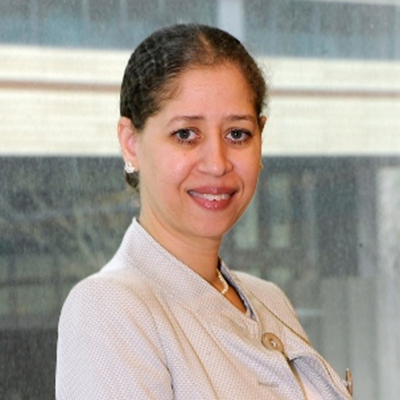
Diane Marie St. George
Associate Professor, Epidemiology & Public Health; Director, MPH Program, Vice Chair, Academic Programs, University of Maryland School of Medicine
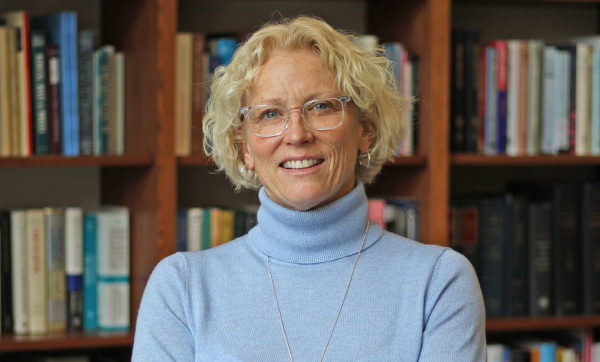
Lisa Sullivan
Associate Dean for Education, Boston University School of Public Health
Lisa Sullivan is the Associate Dean for Education at the School of Public Health. She has a PhD in Statistics and is Professor of Biostatistics and former Chair of the Department of Biostatistics. She teaches Biostatistics and Quantitative Methods for Public Health and was instrumental in developing a minor program in public health which is open to undergraduate students at Boston University. She served as Principal Investigator of the Summer Institute for Training in Biostatistics from 2003-2015, which was designed to promote interest in the field of biostatistics and its many exciting career opportunities. Lisa is co-author of a textbook entitled Introductory Applied Biostatistics, author of Essentials of Biostatistics in Public Health (currently in its third edition) and Editor-in-Chief of the Encyclopedia of Clinical Trials. She is the recipient of numerous teaching awards for excellence in teaching, including the Association for Schools of Public Health/Pfizer Award for Teaching Excellence. Lisa is a senior statistician on the Framingham Heart Study working primarily in developing and disseminating cardiovascular risk functions. She has expertise in multidisciplinary research projects including a variety of projects in cardiovascular disease, a large epidemiological study to assess the association between alcohol exposure in pregnancy and sudden infant death syndrome (SIDS), studies to improve methods for prenatal diagnosis and a clinical trial to improve repetitive behaviors in children affected with autism.

Ciearra "CJ" Walker
President & CEO, St. Louis Community Health Worker Coalition
Ciearra Walker works at the intersection of public health and economic mobility to help transform institutions into racially responsive systems that promote generational community wellbeing. Since 2018, she has worked to engage local leaders and organizations to design a strategy to ensure long-term viability for the CHW workforce, resulting in the birth of the St Louis CHW Coalition.
The St. Louis Community Health Worker Coalition (CHWCo) is a membership group, an organized consulting body, and an independent, social impact organization providing services towards social determinants.
The Coalition is the only non-profit organization in the state of Missouri with a CHW led board, dually positioned as membership group and direct service provider. The CHW Coalition was developed, organized, and governed by CHWs, devised to deliver a range of nontraditional public health and intermediary services – especially within underinvested, mainly African American communities.
Ultimately, the CHWCo is the regional backbone organization striving to build capacity, formalize institutional Community Health Worker leadership, and advocate for long-term sustainability of the workforce within the state of Missouri and beyond.
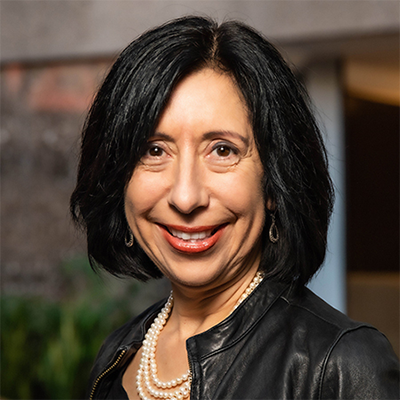
Elizabeth M. Weist
Director of Education, ASPPH
Elizabeth (McGean) Weist is Director of Education for the Association of Schools and Programs of Public Health (ASPPH) where she leads its learning, accreditation, and interprofessional initiatives. She also serves as the ASPPH representative to the Interprofessional Education Collaborative (IPEC) Advisory Group, contributing to both the 2011 IPEC competency development process and the 2016 competency update, and co-leading the 2021-2023 competency updating initiative.
Liz has worked and studied on four continents, spanning the governmental, private, and non-profit sectors, with 25 years of dedicated service to academic public health. At ASPPH, she collaborates with constituent leaders and partners to deliver programs and resources that position member schools and programs in successful, evidence-based teaching and learning for collaborative practice.
She earned her Master of Public Health (MPH) degree in International Health Promotion from the George Washington University Milken Institute School of Public Health, a Master of Arts (MA) from the University of Virginia, and a Bachelor of Arts (BA) from James Madison University. Liz was in the inaugural cohort of Certified in Public Health (CPH) holders, is active in Toastmasters International and her church, and serves on the Arlington County Community Emergency Response Team (CERT).

Laura Magaña
President & CEO, ASPPH
Dr. Laura Magaña is the President and CEO of the Association of Schools and Programs of Public Health (ASPPH). Under Dr. Magaña’s leadership, ASPPH has continued to advance its mission to advance academic public health by mobilizing the collective power of its members to drive excellence and innovation in education, research, and practice. During her tenure, ASPPH has strengthened academic public health research through the Data Center, launched the academic public health leadership institute, and enhanced the voice of academic public health through advocacy efforts. She expanded the association’s global reach by welcoming international members and led ASPPH to join with other regional associations that represent schools and programs of public health around the world to found the Global Network for Academic Public Health, which enhances academic public health worldwide through mutual learning and collaborations between academic public health institutions globally. Dr. Magaña has also launched five strategic initiatives to address critical issues in public health as part of ASPPH’s Vision 2030: Dismantling Racism in Academic Public Health, Climate Change and Health, Framing the Future 2030, Gun Violence Prevention and the ASPPH Workforce Development Center.
Prior to joining ASPPH, Dr. Magaña dedicated more than 35 years to successfully leading the transformation and advancements of public and private universities in Mexico; educational organizations in the United States; United Nations programs; and nongovernmental organizations in Central America and Europe. She was most recently the dean of the School of Public Health in Mexico at the ASPPH-member National Institute of Public Health (INSP). She has also been a faculty member and lecturer at universities around the world.
Dr. Magaña’s diverse portfolio features 90 academic publications and educational technological developments—many of which relate to learning environments, the use of technology in education, and public health education. She frequently speaks with universities, partners, and at national and international conferences on issues such as social determinants of health, health equity, the future of education for public health, the public health workforce, and critical issues in global public health.
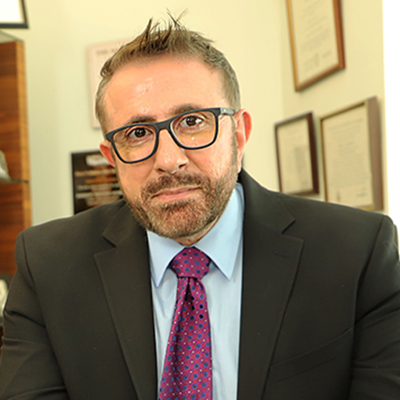
Perry Halkitis
Dean, Rutgers School of Public Health; Chair, ASPPH Board of Directors
Dr. Perry Halkitis is Dean and Professor of Biostatistics and Urban-Global Public Health at the School of Public Health at Rutgers, The State University of New Jersey. He is also Professor in the Robert Wood Johnson School of Medicine, Rutgers Graduate School of Applied and Professional Psychology, and Rutgers School of Public Affairs and Administration as well as a member of the Rutgers Cancer Institute of New Jersey. Dr. Halkitis is also Professor Emeritus at the College of Global Public Health at New York University. Dr. Halkitis holds degrees in psychology, education, and public health.
For over two decades, Dr. Halkitis’ program of research has examined the intersection between HIV and other STIs, drug abuse, and mental health burden, and the biological, behavioral, psychosocial, and structural factors that predispose these and other health disparities in the LGBTQ population. Recently the focus of his work has centered on three main areas: (1) documenting the exposure to bacterial and viral pathogens associated with health disparities and cancer disparities in gay men; (2) understanding the behavioral, biological, psychosocial, and structural factors that predispose infection with these pathogens and other health burdens; and (3) implementation research that integrates biomedical and behavioral approaches to deliver healthcare services to gay men within the community to prevent these disparities. This work is being enacted in the United States in large urban centers including Newark, New Jersey and is being developed in Athens, Greece. Dr. Halkitis is the founder and director of the Center for Health, Identity, Behavior & Prevention Studies (CHIBPS; www.chibps.org), which is a training site for the next generation of scholars and partners with community agencies to conduct studies for and with the LGBTQ population.
Resources
A full transcript of this event is available here.
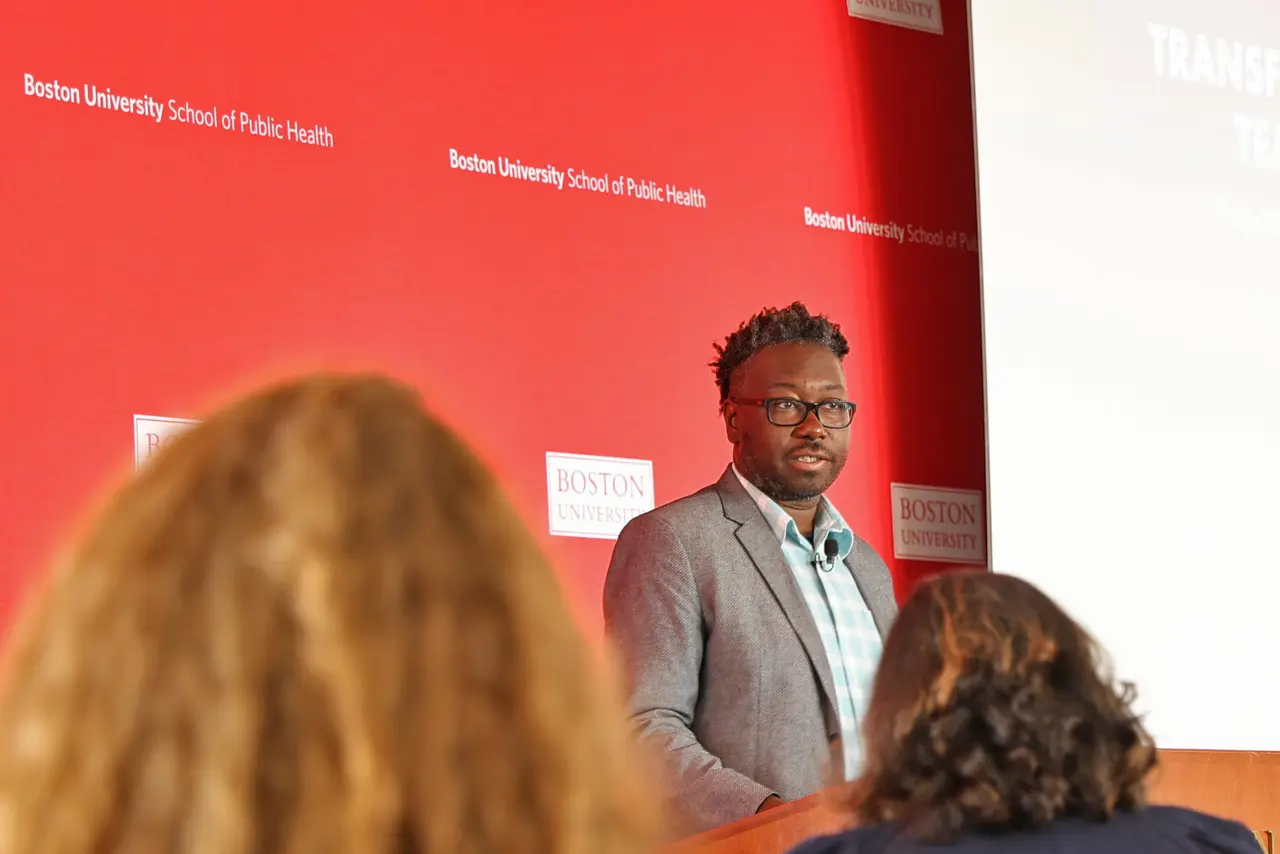
Subscribe to PHC
Get the latest from Boston University School of Public Health



